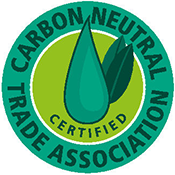The course aims to explain how lubricant blending plants are designed and why, to provide an in-depth understanding of the principles, economics and flexibility of lubricant blending plants and how to operate a lubricants blending plant efficiently and economically. The latest developments and trends in lubricant blending and the advantages and disadvantages of lubricant blending equipment, facilities and operations will be discussed. The importance of testing components and products for each blend, lubricant blend quality control and product quality management will be explained. It will also clarify the importance of lubricant product filling, packaging and warehouse storage, strategies for optimising existing lubricant blending plant facilities and how to avoid or minimise problems with lubricant blending and product quality.
Who Should Attend
This in-depth, practical training course will help middle and senior managers to understand how and why to design and operate an efficient and profitable lubricant blending plant. It will help blending plant operators and specialists to improve and optimise current blending plant operations. Manufacturers of lubricants will understand how and why high-quality components and effective testing during the entire blending process are important to final lubricant product quality and performance. Lubricant formulators will understand the importance of close communication and co-operation with blending plant managers and operators to minimise blending costs and to thereby maximise product profitability.
About Your Expert Trainer
David Whitby is Chief Executive of Pathmaster Marketing Ltd, a business development consultancy for the international downstream oil, gas and energy industries. David began his career with British Petroleum as a process chemist at the Kwinana refinery in Western Australia. He worked for BP for 22 years in a number of management positions, including Marketing and Business Development Manager, Business Manager at BP Ventures, Project Leader for Industrial Lubricants at BP Research and Marketing Services Officer at Duckhams Oils.
David was Programme Director for Lubricants Courses at The Oxford Princeton Programme (formerly the College of Petroleum), where he was responsible for planning the overall lubricants course programme and for the content and marketing of all the courses. He also directed the Advanced Lubrication Training Programme for the United Kingdom Lubricants Association. Over the last thirty years, David has directed and lectured to over one hundred lubricants training courses for more than thirty companies and organisations.
Course Agenda in Summary
Day 1
Mineral Oil Base Oils; API Groups I, II and III: Properties and Characteristics
Synthetic Base Oils; API Groups IV and V: Properties and Characteristics
Lubricant Additives: Properties and Characteristics
Lubricant Formulation and Ease of Blending
Blending Plant Design: Grassroots Plants and Upgrading Existing Plants
Blending Plant Equipment and Facilities and Their Operation
Lubricant Blending Issues: Avoiding Problems
Day 2
Testing and Analysis of Base Oils and Additives
Testing and Analysis of Blended Lubricants
Product Quality Control
Lubricant Packaging and Filling
Lubricant Storage
Product Quality Management
Q&A session and Course Assessments
For further information please email events@ukla.org.uk, or call +44 (0)1442 875922









